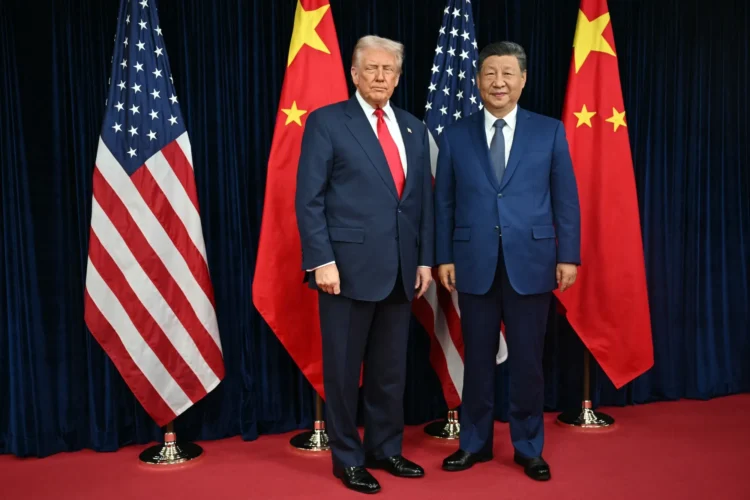Quick Breakdown
- De-escalation talks: Trump and Xi met in South Korea to reduce trade tensions and stabilize global markets.
- Tariff rollback likely: US officials signal Trump may not pursue his 100% import tax threat.
- Industry concerns: Tariff uncertainty continues to impact Bitcoin mining and AI hardware sectors.
US-China leaders meet to calm trade tensions
US President Donald Trump and Chinese Communist Party leader Xi Jinping met in South Korea in a bid to restore stability between the world’s two largest economies. The high-stakes meeting aimed to ease ongoing tariff disputes that have fueled volatility across global and crypto markets.
President Donald J. Trump meets with Chinese President Xi Jinping in South Korea.
“I think we’re going to have a fantastic relationship for a long period of time, and it is an honor to have you with us.” pic.twitter.com/ISpVBzkvN3
— The White House (@WhiteHouse) October 30, 2025
Ahead of the bilateral session, Trump suggested progress was already underway, noting that “both sides have agreed to a lot” and expect further alignment. In a video shared by the White House on X, he expressed optimism about the outcome, saying,
“I think we’re going to have a fantastic relationship for a long period of time.”
The Rapid Response 47 account later confirmed that the meeting had concluded.
Market instability tied to tariff pressures
Trump’s renewed use of tariffs since returning to office, coupled with China’s countermeasures restricting rare earth exports, has raised fears of an economic slowdown. These tensions have also rippled into the crypto sector — notably during the October 10 crash when Bitcoin plunged from $121,560 to below $103,000.
According to mainstream reports, neither Washington nor Beijing is willing to risk destabilizing the global economy. The in-person meeting was seen as essential to finding a path forward that avoids further disruption.
Sources familiar with the talks revealed that Trump is unlikely to follow through on his earlier threat to impose an additional 100% import tax on Chinese goods. Meanwhile, China is reportedly preparing to relax export restrictions on rare earth elements and resume agricultural imports such as soybeans from the US.
Tariffs impact Bitcoin Mining and AI Sectors
During his Asia tour, Trump also met leaders in Malaysia, a growing manufacturing hub for Bitcoin mining equipment destined for the US. However, with a 19% tariff currently imposed on Malaysian exports, uncertainty remains high among American miners relying on Southeast Asian imports.
In addition, China’s restrictions on rare earth exports have sparked concern in the artificial intelligence industry, which depends heavily on these materials for advanced hardware production.
If you would like to read more articles like this, visit DeFi Planet and follow us on Twitter, LinkedIn, Facebook, Instagram, and CoinMarketCap Community.
Take control of your crypto portfolio with MARKETS PRO, DeFi Planet’s suite of analytics tools.”





















